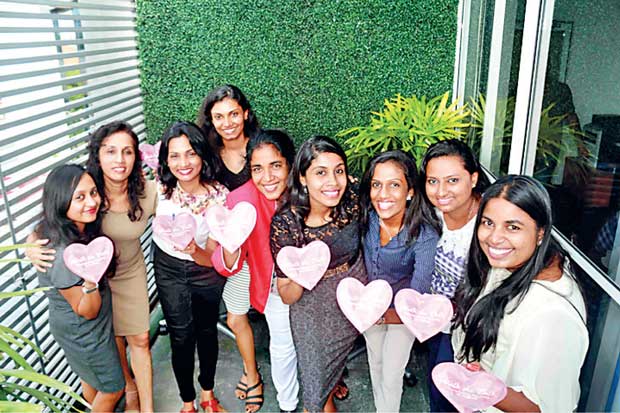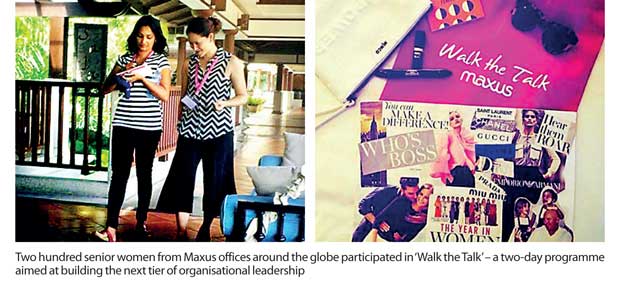10 Jun 2016 - {{hitsCtrl.values.hits}}


It has never been more imperative to address equality in the workplace. The case for equality in the workplace is backed by moral and social arguments and increasingly by business ones.
After extensive research in 25 countries, the Deloitte Global Centre for Corporate Governance noted a direct correlation between diversity and financial performance in a recent report. It reported, “Companies where women make up a third or more of board members significantly outperformed their rivals, with 53 percent more return on equity.” (Deloitte Global: “Women in the Boardroom: A Global Perspective”)
A new report released in 2015 by McKinsey Global Institute found that “US $ 12 trillion could be added to global gross domestic product (GDP) by 2025 by advancing women’s equality” if countries took the steps to bridge the gender gap. (McKinsey Global Institute Report, 2015)
A diverse and fair workforce – with people from different backgrounds, religions and genders – equals a vibrant working culture. While this is freely acknowledged on paper and has now transformed into a truism, it doesn’t always translate into practice. It is encouraging to see it being discussed and acknowledged but despite legislative efforts in numerous countries, gender diversity still isn’t a priority in the workplace. Worldwide, a meagre 12 percent of board seats are held by women while out of the world’s 500 leading corporations, only 4 percent are led by women.
Women form 57 percent of the population in Sri Lanka and the stats pertaining to gender diversity and representation in the workforce are sobering. For a country that has produced the world’s first female prime minister and the world’s first female executive president, there are only 13 women representatives among the 225 members of parliament (6 percent).
A 2015 LBO article highlighted that while women outnumber men in government and private tertiary education institutions, the numbers aren’t reflected in the labour force. The article noted that the underemployment of educated women and low female participation in the workforce are critical issues that need to be addressed to propel the national economy.
Sticky floor syndrome
The reasons for this issue are manifold. One is the ‘sticky floor syndrome’, where discriminatory employment patterns consistently relegate a particular group to the bottom rung of the job ladder. Coined by sociologist Catherine White Berheide, the sticky floor syndrome is often referred to low-paying, low-mobility positions with little or no growth opportunities. The other is the ‘glass ceiling’ – the artificial barrier which discriminates against women in middle-management positions. Other reasons also include the societal pressure for women to maintain the perfect work-life equilibrium between family and professional life, self-made barriers such as self-doubt, which hinder personal growth, unfair HR policies, industry biases and more. In a competitive business climate, it is crucial to seek solutions to these challenges for businesses to reach its fullest potential and achieve its long-term vision. Many businesses have begun to self-reflect and realize the importance of workplace diversity and its social and economic payoffs.
For us at Maxus Global, a media buying and planning agency of industry leader GroupM, this introspection has seen tangible results. Forty percent of our global senior leadership are women while the company has a gender pay gap of only 4 percent - considerably lower than the rest of the industry. Our global offices have also pledged to review the pay gap and offer flexible working hours as well as maternity and paternity policies. Led by WPP’s first female media agency global CEO Lindsay Pattison, we have taken concrete steps to build diversity. Our most recent initiative was ‘Walk the Talk’, a two-day life-coaching programme that took place in three regions in April 2016. The event was exclusively catered for 200 senior women to empower them and build the next tier of organisational leadership within Maxus across the world and also saw participation from our Sri Lankan office.
Maxus Sri Lanka Associate Business Director Dilhani Jayasekara was one of the two Sri Lankans who attended Walk the Talk in Phuket and will be tasked with introducing the learning acquired into a Sri Lankan context. Speaking about her experiences, Dilhani noted, “As leaders of change, events like this help light the way to see how we can make a significant impact on the world. Empowering women helps create an equal corporate playing field, harnesses the best talent to achieve business goals and helps create a strong and vibrant business environment that people aspire to work in.”
It is noteworthy that Maxus in Sri Lanka has a 50:50 split, representing a gender balanced workforce at all levels - be it executive or at senior management. We are excited about supporting the learning our staff acquired at the event and implementing it across the board.
“At Maxus we believe in no limits for women and our mission is to empower everyone at Maxus equally to advance up the career ladder. It’s an honour to be part of such an inspiring culture and at Walk the Talk, this feeling was only reinforced. The learning we acquired was illuminating and it was inspiring to be in the company of the strong, empowered women who are a vital part of the global Maxus family,” commented Senior Business Manager Amali Yapa, reflecting on her experience at the event. It is encouraging to see the debate about workplace diversity gathering momentum, going beyond words and seeing fruition through action. It is important to remember that gender diversity is not about creating partiality for women but levelling the playfield, augmenting talent equally and creating equal opportunities to drive the success of businesses. To achieve this, it is vital that managements, CEOs, policymakers and governments participate in the discussion. Fairness in the workplace and the labour force has financial impacts which ripple beyond a business and affects the narrative of a nation – it is time for Sri Lanka to work harder towards this.
(Alvin Gomesz is General Manager at Maxus Sri Lanka)
10 Jan 2025 40 minute ago
10 Jan 2025 2 hours ago
10 Jan 2025 3 hours ago
10 Jan 2025 4 hours ago
10 Jan 2025 5 hours ago